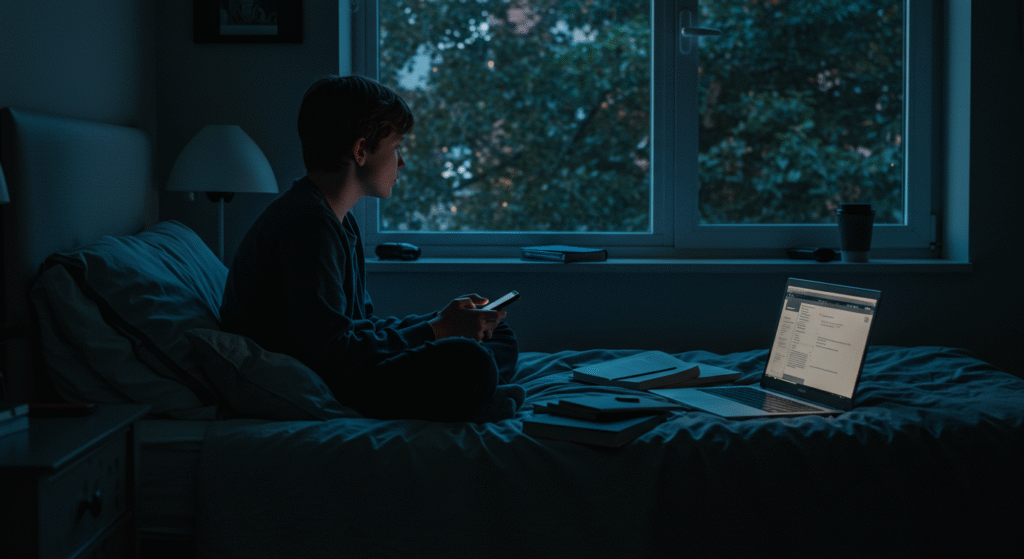
Teenagers in Crisis Mode
The old saying, “You never know what you have until it’s gone,” has never felt more true. For today’s teenagers, the quarantine era turned their social world upside down. No school hallways. No weekend hangouts. No in-person graduations. It all disappeared into virtual spaces, and the toll it’s taken on teen mental health is undeniable.
When Free Time Isn’t Freedom
At first, it seemed like a dream: no school commute, more sleep, and endless hours online. But the novelty wore off quickly. Teenagers found themselves stuck at home, dealing with:
- Loss of routine
- Crowded or chaotic home life
- Digital-only friendships
- Uncertainty about the future
Many now experience a constant low mood—a creeping numbness and disinterest in the things they used to enjoy.
The quarantine crisis isn’t just physical. It’s emotional and psychological—especially for young minds still learning to cope.
What Parents Can Do to Help
✅ Encourage Social Connection (Gently)
Don’t push them, but encourage video calls with friends or extended family. A real face on a screen can be far more uplifting than text chats or scrolling feeds.
✅ Mix Up the Day
Even if they love gaming, staring at a screen for 12 hours straight is draining. Add variety with:
- Family movie nights
- Shared mealtimes
- Outdoor activities or home workouts
Keep it light, not forced. Teens respond better when they feel like they have a choice.
Space Matters Too
Teens also need personal space. Being cooped up 24/7 with siblings, parents, and noise can drain even the most extroverted teen. Let them retreat when they need to. It’s not rebellion—it’s recharge.
Alone time helps teens reset. Respecting it can build trust and reduce friction.
Be Present Without Hovering
It’s easy to think that teens “have it covered” because they’re tech-savvy. But that doesn’t mean they don’t need you. Help with homework. Celebrate their virtual milestones. Ask about their online classes or hobbies.
They might roll their eyes—but deep down, they’ll feel supported.
Keep the Long View
Eventually, this “temporary normal” will end. But in the meantime, we must reduce the mental strain on our youth. Pay attention to:
- Mood changes
- Withdrawal from friends
- Sleep disruptions
- Increased irritability or sadness
If these signs persist, don’t hesitate to seek professional support. Early intervention makes a difference.
💬 Final Thought
The world might be on pause, but emotional development isn’t. Teens are still growing, feeling, and forming their identity—and they need support now more than ever. With empathy, balance, and open communication, we can help them navigate this unprecedented season with strength.

